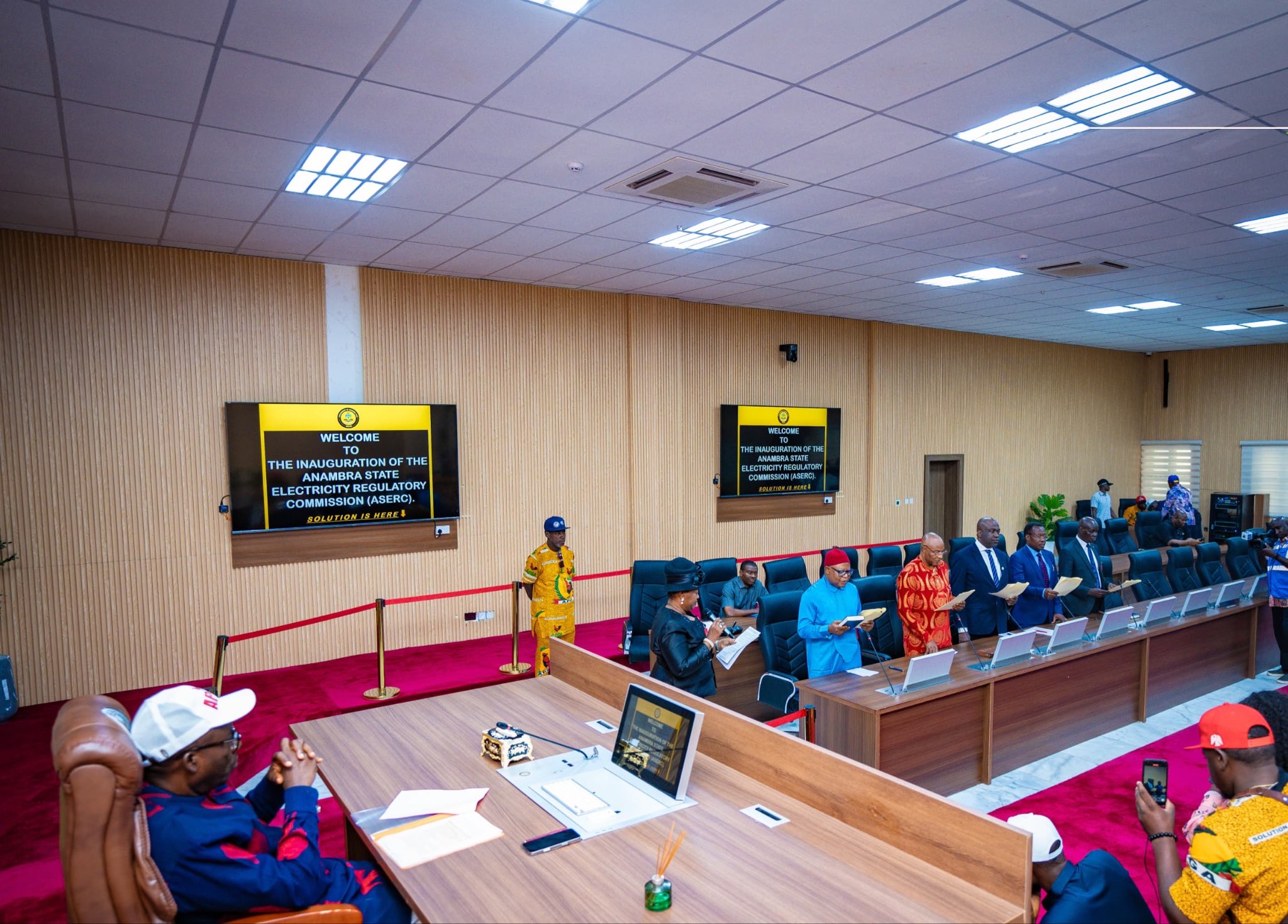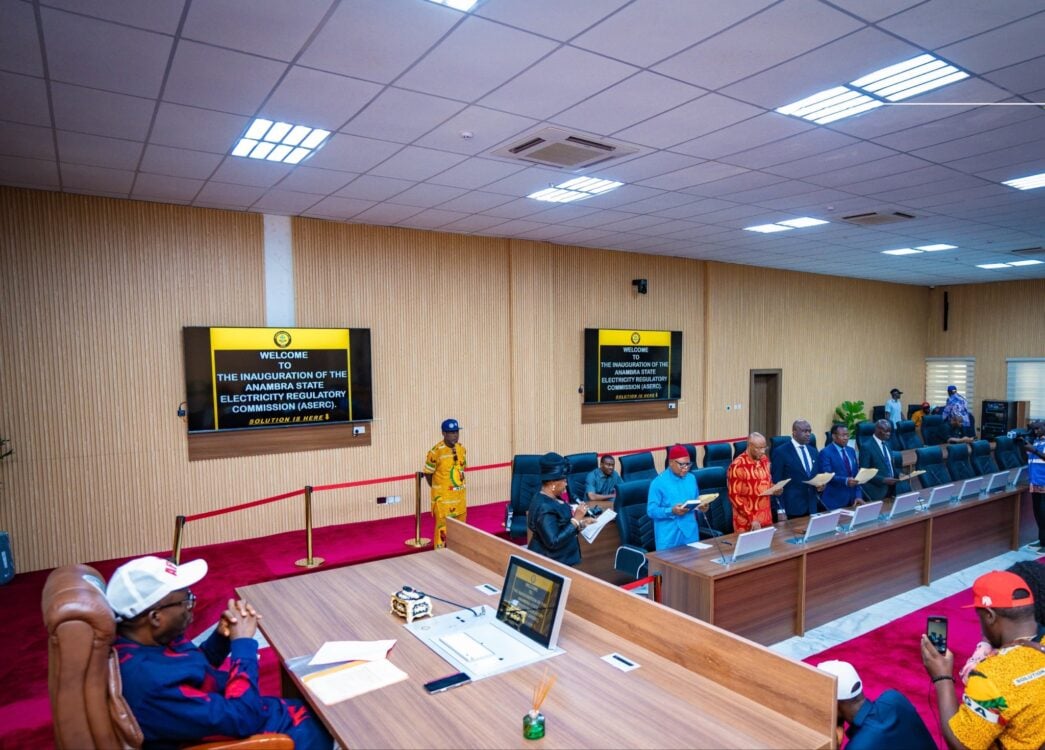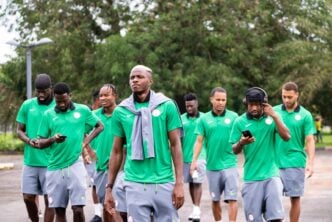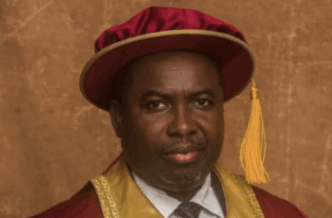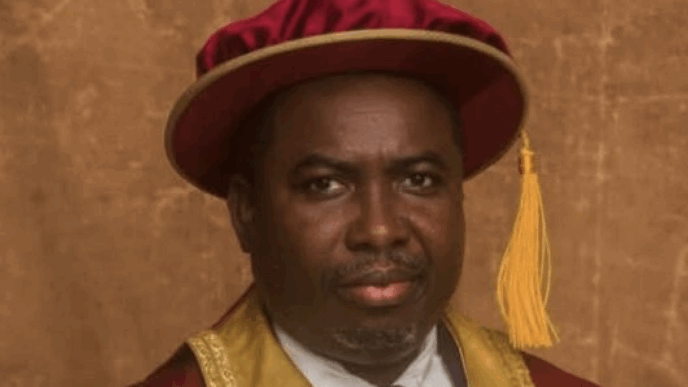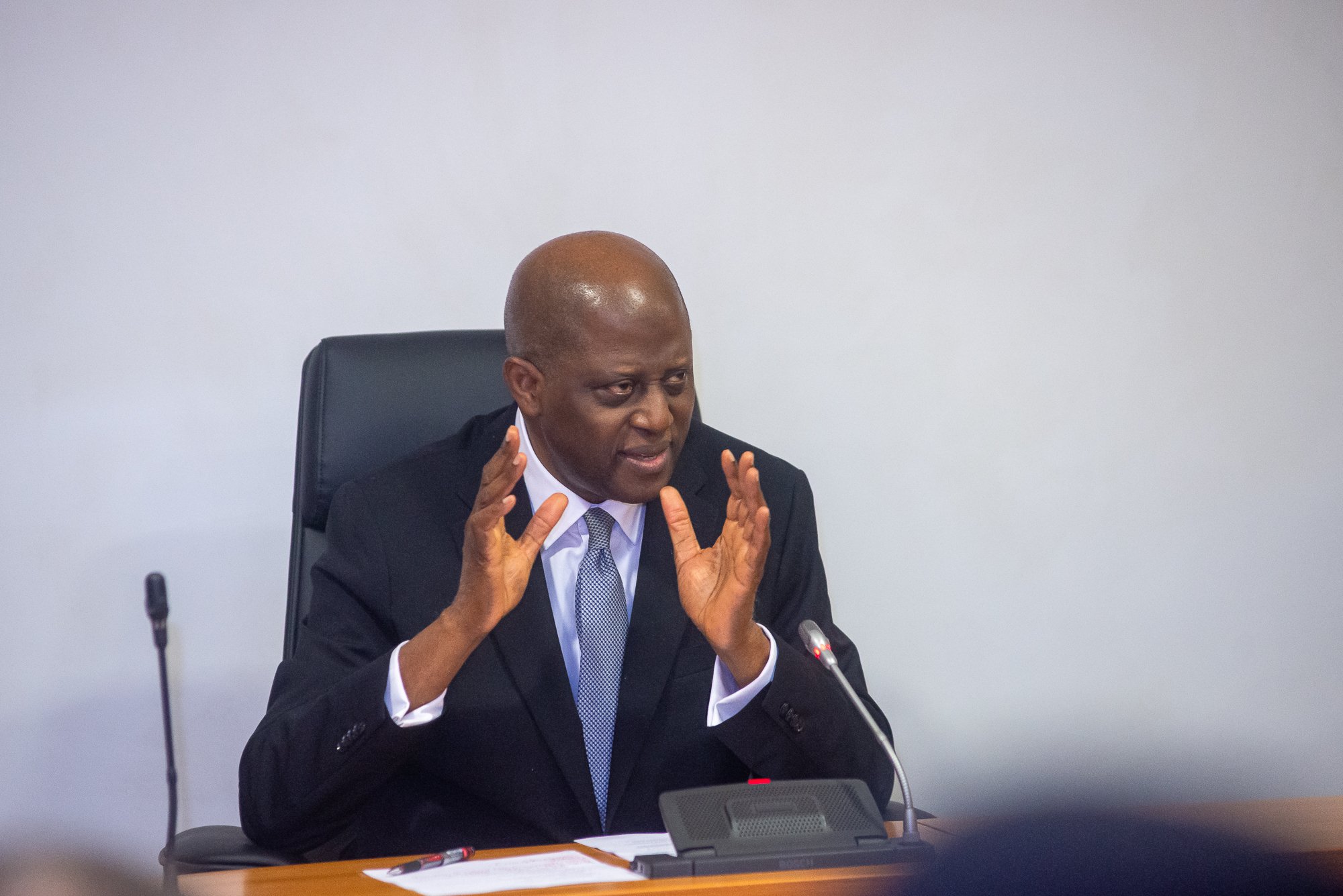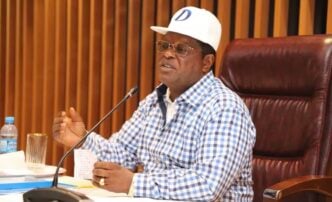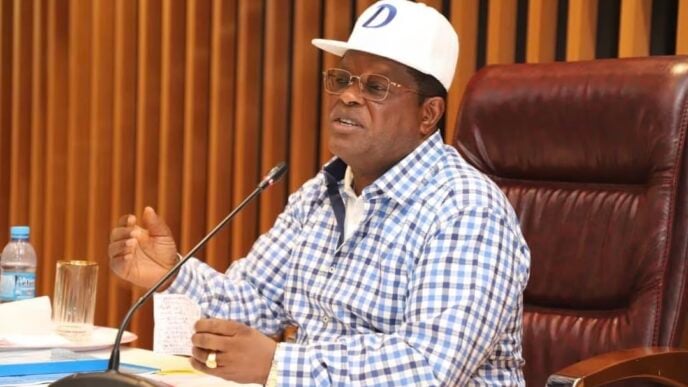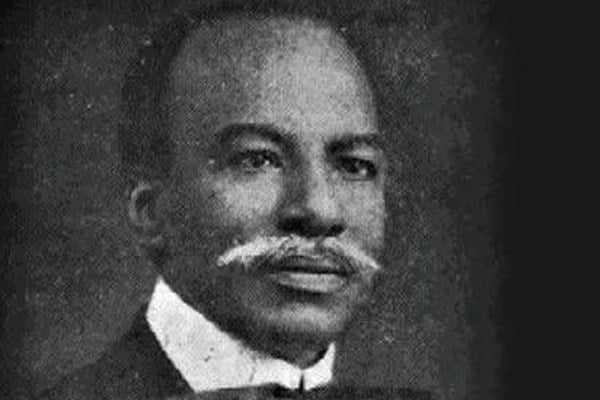Last Thursday, Governor Chukwuma Soludo inaugurated the Anambra State Electricity Regulatory Commission (ASERC). Anambra has been very methodical and intentional in developing its own electricity market. The Commissioner of Power and Public Utilities, Engr. Julius Chukwuemeka, and his team had their job cut out as Governor Soludo was clear on having a unique and fit for purpose electricity market that would power the ongoing infrastructural development in the state, the three brand new cities being developed – including the Anambra Mixed Used Industrial City (AMIC) – the new Onitsha Main Market and the industrial clusters in Nnewi. Anambra took its time to learn and improve on what other states are doing. This column believes that the coming years will be exciting for Anambra State in terms of its electricity market.
When President Bola Tinubu signed the Electricity Act into law in 2023, the purpose was to decentralize power by removing it from the exclusive legislative list. President Tinubu’s noble intention and strategy was clear: to give sub-national entities the power to generate, transmit and distribute electricity. This column believes that President Tinubu has a robust vision for Nigeria’s electricity industry. His track record and mindset are clear. Having set the foundation for the Lagos State electricity market between 1999 to 2007 – i.e. before the coming of the Electricity Act of 2023 – with the establishment of Nigeria’s first IPPs, reforms in the Lagos State Electricity Board, the attraction of major electricity and energy companies such as Enron/AES and Oando, and advocating for the decentralization of Nigeria’s electricity market as governor, no one was surprised at the speed with which President Tinubu assented to the Electricity Bill 2023, thereby making it a law of the federal republic of Nigeria.
Unfortunately, the Guardian Newspaper reported on the 23rd of September 2025 that Nigeria’s push for a decentralized electricity market was facing deadlock in 24 states, ‘’as tariff structure and debt crisis threaten the contributions of sub-national governments to the distressed sector’’.
Though the Forum of Commissioners for Power and Energy (FOCPEN) has refuted the Guardian Newspaper’s report, legacy issues such as high cost of running a cost-reflective market, energy theft, mounting legacy debts and the threat of fresh subsidies have impacted the smooth running of various electricity markets at the sub-national level. Today, about 12 states have been granted regulatory autonomy to have their own electricity market but electricity generation has not seen significant improvement in some of these states.
Advertisement
There are many teething issues. Electricity analysts argue that despite the fact that states now have the legal backing to legislate on their electricity markets, they are still tied to the national grid and wholesale market run by federal agencies. For example, most states are still fully tied to the national grid and transmission are still operated by national entities. This alone could reduce the speed at which states develop their independent electricity market because of inherent confusion about who sets market rules, tariffs and licensing conditions. (Though, this column understands that the Minister of Power and his team are working very hard to address these teething problems).
The Guardian Newspaper also reported that despite the euphoria created by the National Electricity Act 2023, some states were still constrained with the following issues: high cost of running a cost-reflective market, energy theft, mounting legacy debts and the threat of fresh subsidies. The newspaper cited Enugu State Electricity Regulatory Commission (EERC) tussle with MainPower over tariff, which assumed a generation cost that electricity industry watchers claim was below national wholesale weighted average of N112.6/kWh.
All these issues were put into consideration before Governor Soludo hit the ground running. The plan is to make Anambra unique and a model for other states to copy. This plan is on course!
Advertisement
Governor Soludo has started by creating a formidable team of regulators. The just inaugurated Anambra State Electricity Regulatory Commission (ASERC) has Prof. Frank Nwoye Okafor as Chairman and Chief Executive Commissioner. Prof Okafor has been a visiting professor of electrical engineering at the Technical University (TU) Dresden, Germany, a professor in University of Lagos and a Commissioner in the Nigerian Electricity Regulatory Commission (NERC) between 2017 and 2022. He represented the South‐East geopolitical zone in the Commission. He has a strong industry and academic background. Getting a thorough bred and very experienced professional team at a state’s electricity regulatory commission is the first step in positioning a state’s electricity market for sustainability. Anambra carefully recruited its team in its electricity regulatory commission. The state recruited a team that knows what the issues are. One key strength any state regulator needs is the ability to have experienced regulators, legal teams and technical staff to design market rules. Some analysts have argued that sub-national governments lack the manpower and expertise to run an independent electricity market, pointing out that even NERC, the national regulator, which has been in operation for over 20 years, still struggles with enforcement. While some, like the Nigerian Society of Engineers (NSE), have argued that the main issue was that policy makers do not listen to solutions from well-grounded professionals or engineers in the country. But this will not be the case in Anambra.
Why? The Soludo-led administration is clear: the state electricity regulatory commission will have zero political interference. This is a key strategy. Today, many analysts argue that political interference impacts state electricity regulatory commissions, primarily through conflicts over jurisdiction, particularly regarding tariffs, and the struggle to balance federal versus state authority after the Electricity Act 2023.
Anambra was very strategic and methodical in developing its electricity market. Anambra State’s journey started by developing a robust Electricity Policy and a State Integrated Resource Plan (IRP). The IRP is a scientific and data-driven roadmap for balancing and projecting Anambra’s energy demand and supply across short, medium and the long term. The developed IRP helps in the planning of ‘’where power will come from, where it will go, and how best to integrate renewable and conventional energy sources’’ to ensure energy security in Anambra State. This took into consideration the power needs for the ongoing industrialisation in the state, the development of the ongoing 3 brand new cities – including the Anambra Mixed Used Industrial City (AMIC). These efforts culminated in the passage of the Anambra State Electricity Law, 2025. This law domesticates the provisions of the 2023 Electricity Act.
Anambra’s methodical approach to its electricity market will help solve some protracted issues some state electricity regulatory commissions are having with respective Discos in their jurisdictions. Because under the Electricity Act 2023, once a state claims regulatory control, the DisCo within its jurisdiction must restructure into a state-level entity, there has been some conflicts within many states. This is because in most states, physical distribution assets are still operated by Discos under national licenses, thus, interconnection, balancing and technical standards require close coordination between state regulatory commissions and Discos. Besides, many Discos are facing severe cashflow and debt problems. Anambra has taken time to analyze this problem before going full blast in setting its own electricity regulatory commission. The Enugu Electricity Distribution Company (EEDC) was a key stakeholder in the formation of Anambra State’s electricity policies. A functioning electricity market needs creditworthy retail offtakers and distribution partners. By having EEDC as a critical stakeholder, Anambra State was able to learn from its experiences and build on its shortcomings. Experience, they say, is the best teacher! Issues related to metering, revenue collection and technical losses have been wholistically addressed in the Anambra’s electricity policy. These issues have been hindering constant electricity supply in the country. State electricity markets cannot survive without reliable measurement and cash collection systems.
Advertisement
In the coming days, Anambra State will formally write to the Nigerian Electricity Regulatory Commission (NERC) to request the transfer of regulatory authority over intra-state electricity operations to the Anambra State Electricity Regulatory Commission. This will be followed with a notification to EEDC.
The future of the Anambra electricity market is bright. The with the level of transparency and guidance in the Anambra electricity market, potential investors in Anambra will have nothing to worry about. Anambra has gotten it right!
Nwankwo is the special adviser to Soludo on special projects.
Advertisement
Views expressed by contributors are strictly personal and not of TheCable.

